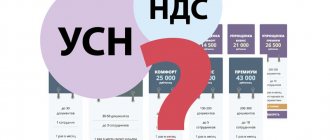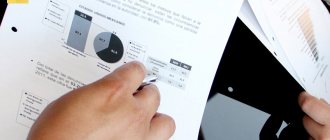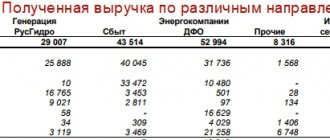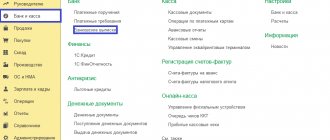How to count books and magazines:
Many companies subscribe to various newspapers and magazines, buy books and books. Their accounting raises many questions among accountants. The Ministry of Finance recently responded to some of them.
How to reflect payment for publications
There are two ways to pay for printed publications:
– in advance. In this case, the company first transfers money and then receives magazines or newspapers over a certain period of time. As a rule, the subscription is issued for three or six months;
– directly at the publisher or in the store. In this case, you pay money and immediately receive printed products.
Most companies use the first option. Consider the money transferred for magazines as advances issued:
Debit 60 subaccount “Advances issued” Credit 51
– money for subscription has been transferred.
Please note: the tax inspector may consider that prepayment for publications should be taken into account as deferred expenses. In this case, you will have a property tax debt. The fact is that future expenses increase this tax.
In this case, disagree with the inspector. Justify your position like this.
Costs arise when the firm's economic benefits are reduced (for example, you paid a materials supplier). This is what is written in paragraph 16 of PBU 10/99.
But this does not happen when you pay for a subscription. After all, you have not yet received any products. The company simply made an advance payment. Therefore, the transferred money must be taken into account as advances issued.
If you do not want to argue with the tax inspector, then reflect the subscription costs as deferred expenses. You can read how to do this in the “Correspondence of invoices” berator on page VIII/97/03.
Example 1.
CJSC Aktiv subscribed to the Practical Accounting magazine for the first six months of 2003. The company paid 1,200 rubles for this. (including 10% VAT – 109 rubles).
The Aktiva accountant reflected the subscription as follows:
Debit 60 subaccount “Advances issued” Credit 51
– 1200 rub. – money for subscription has been transferred.
As new issues of magazines or newspapers arrive, write off their cost as expenses. The Ministry of Finance explained how to do this in a recently published letter dated August 26, 2002 No. 16-00-12/19.
How to reflect the receipt of publications
Consider printed publications as fixed assets. Record each magazine, takeaway or book you receive separately.
Reflect the receipt of literature as follows:
Debit 60 Credit 60 subaccount “Advances issued”
Debit 68 subaccount “VAT calculations” Credit 19
– submitted for VAT deduction.
Please note: in order to deduct VAT, you must have an invoice. If you do not have this document, call the publisher and ask them to send it.
Reflect the received publications in a special book for recording literature. There is no special form for it. Therefore, enter it in any order. For example, this book might look like this:
How to take books into account
An employee of the organization was given money to buy books. At this stage, it does not matter at all what kind of books he was instructed to buy - for production purposes or for the general development of employees.
He draws up an application, takes money, buys books and at the appointed time submits an advance report (AO) with all supporting documents to the accounting department.
For the JSC form and rules for filling it out, see the articles:
- ;
- “Sample of filling out an advance report in 2015”.
As soon as the accountant accepted the JSC, the employee is obliged to return the balance - unspent funds, if any. If this does not happen, then these funds can be regarded as income subject to personal income tax. With the written consent of the employee, the organization has the right to withhold debt in the amount of no more than 20% of his salary (Article 138 of the Labor Code of the Russian Federation, letter of Rostrud dated 08/09/2007 No. 3044-6-0).
In case of overexpenditure, the organization is obliged to reimburse the employee for the amount of overexpenditure.
How to do this correctly, read the article “What to do if the accountable person has spent his money?”
After clarifying all the details with the accountant, the accountant is faced with the question of how to correctly accept the purchased books for accounting.
Now you need to figure out for what purpose the books were purchased - were they purchased for the work of the organization or the purpose can be considered general educational.
When this issue is clarified, the accountant will make entries in the accounting records.
By virtue of clause 4 of PBU 6/01 (Order of the Ministry of Finance dated March 30, 2001 No. 26n), business literature can be classified as OS. But if its cost is less than 40,000 rubles, and as a rule, this is the case, it is taken into account as part of the inventory. At the same time, control is established, the movement of books is monitored and safety is ensured after they are put into operation (clause 5 of PBU 6/01). The rules for accounting for literature must be enshrined in the accounting policies.
Accountable persons - who are they?
Who are the accountable persons? These are employees of the organization who have the right to take money on account. The list of such people is approved by order of the head. Money can be issued from the organization’s cash desk or transferred from a current account to employees’ personal bank cards.
How exactly to issue money to an account from the cash register or make a transfer to an employee’s card, read the articles:
It must be remembered that the employee must write an application for the issuance of money regardless of the method of issuing the money.
What mandatory details should an application for the issuance of money contain, read the article “We are preparing an application for reporting - a sample for 2015–2016.”
Blog
If an enterprise acquires software for its own use (for example, the 1C:Enterprise program or 1C:Salary and Personnel Management), then the enterprise does not acquire exclusive rights to this software.
In this case, an intangible asset (IMA) does not arise in the accounting of the enterprise, because there is no transfer of exclusive rights to the software (according to PBU 14/2007 and clause 3 of Article 257 of the Tax Code of the Russian Federation). When purchasing 1C, the enterprise only has the right to use the results of intellectual property, and this right is not exclusive. Therefore, in the case of acquiring non-exclusive (that is, temporary) rights to a program, the costs of acquiring the right to use the program should be taken into account gradually during the period of use of this software using account 97 “Deferred expenses”. That is, first to account 97, and then to the expense accounts.
Related course
Accounting and tax accounting for beginners + 1C: Accounting 8.3
Find out more
The period for using the program is usually indicated in the documents for the transfer of non-exclusive rights (deed or invoice), but if this period is not specified, then it should be taken equal to 2 years (in an official letter from the 1C company The recommended period for using their software is two years).
Example: An enterprise purchased the 1C program: Salary and Personnel Management at a price of 7,500 rubles. (excluding VAT).
The postings will be like this:
| № | Dt | CT | Sum | Primary document | Contents of a business transaction |
| 1 | 60.02 | 51 | 7500,00 | Payment order, bank statement | Prepayment for the program has been made |
| 2 | 60.01 | 60.02 | 7500.00 | Invoice (or act) | Advance credited |
| 97.21 | 60.01 | 7500.00 | The program has been capitalized | ||
| 3 | 26 | 97.21 | 312.50 | Accounting certificate (generated automatically at the end of the month) | Accepted as expenses is 1/24 of the cost of acquiring the right to use the program (RUB 7,500: 24 months) This posting will be generated 24 times until the account is “closed” at 97.21 |
In order for the program to automatically accept part of the cost of the program as expenses, it is necessary to correctly indicate the period of use and cost at the time of its receipt. To do this, you need to correctly fill out the deferred expense card (FPR) for account 97.21.
Similarly, you need to take into account reference and information services, services for submitting reports electronically, anti-virus programs, etc.
Moreover, it is not legal to immediately take into account the costs of purchasing a non-exclusive right to a program without using account 97, as stated in clause 39 of PBU 14/2007 “Accounting for intangible assets”
The tax treatment of the above expenses is quite controversial. For example, in the letter of the Ministry of Finance No. 03-03-06/1/331 dated 06/07/2011, officials expressed the opinion that if the agreement for the transfer of non-exclusive rights specifies the period for using the program, then during this period expenses must be recognized in equal shares for tax purposes. However, the Tax Code of the Russian Federation does not contain a direct restriction on accepting a lump sum as expenses for the acquisition of rights to use programs. There is also arbitration practice on this topic in favor of one-time acceptance of the entire cost of software (resolutions of the FAS of the Volga Region No. A55-9496/2008 of February 16, 2009 and No. KA-A40/6263-09 of July 9, 2009 of the FAS of the Moscow District).
Come to the ProfiRost training center and we will teach you to take into account not only software, but also much, much more!
Grow and develop together with PROFIROST. / “Accounting encyclopedia “Profirosta” 10/04/2017 Information on the page is searched for by the following queries: Accountant courses in Krasnoyarsk, Accounting courses in Krasnoyarsk, Accountant courses for beginners, 1C: Accounting courses, Distance learning, Accountant training, Training courses Salaries and personnel, Promotion qualifications of accountants, Accounting for beginners Accounting services, VAT declaration, Profit declaration, Accounting, Tax reporting, Accounting services Krasnoyarsk, Internal audit, OSN reporting, Statistics reporting, Pension Fund reporting, Accounting services, Outsourcing, Reporting UTII, Accounting, Accounting support, Provision of accounting services, Assistance to an accountant, Reporting via the Internet, Preparation of declarations, Accountant needed, Accounting policy, Registration of individual entrepreneurs and LLCs, Taxes individual entrepreneurs, 3-NDFL, Organization of accounting
Tax accounting
Any literature, including books, if purchased for production purposes, can be taken into account when calculating income tax as part of other expenses (subclause 49, clause 1, article 264 of the Tax Code of the Russian Federation).
If the purchased books are of a non-production nature, then when determining the tax base for income tax, the costs of their acquisition are not taken into account (clause 29 of Article 270 of the Tax Code of the Russian Federation).
The same rule applies to the “input” value added tax. In accounting, it is accounted for in account 91.2 and is not accepted for tax purposes, that is, for deduction.
Officials prohibit organizations that use simplification from taking into account expenses for periodicals and printed publications for tax purposes (see letters from the Ministry of Finance dated August 10, 2009 No. 03-11-06/2/151, dated January 17, 2007 No. 03-11-04/2/ 12). But there is another opinion: they can be recognized as material expenses (subparagraph 5, paragraph 1, article 346.16, subparagraph 3, paragraph 1, article 254 of the Tax Code of the Russian Federation). It is supported by some courts (for example, resolutions of the FAS PA dated October 30, 2008 No. A65-1419/2008, FAS DO dated January 30, 2008 No. F03-A80/07-2/6039). Therefore, the organization needs to decide on its own whether to accept expenses for the simplified tax system or not.
Issue money, check the correctness of the report, make entries for the receipt of purchased goods - all this must be remembered when dealing with accountable persons. Well, in a situation with the purchase of books, it is necessary to add to this list a clarification of why they are being bought, so as not to be mistaken in accepting the amounts spent as expenses.
Results
Issue money, check the correctness of the report, make entries for the receipt of purchased goods - all this must be remembered when dealing with accountable persons.
Well, in a situation with the purchase of books, it is necessary to add to this list a clarification of why they are being bought, so as not to be mistaken in accepting the amounts spent as expenses. You can find more complete information on the topic in ConsultantPlus. Free trial access to the system for 2 days.







